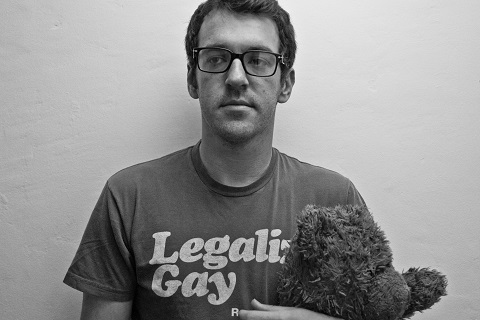Everyone knows comics are an anxious, fearful bunch. In fact, a recent article on The Independent’s website claimed to prove the link between comics, anxiety and mental illness. It of course immediately went viral in the comedy community as comedians took a sort of pride in finally being diagnosed. Accepting this trait in comics and talking about it on and off stage lends a sort of credibility to comedians. The question is, at what point is it self-destructive to buy into the idea that psychosis is synonymous to comedy?Self-proclaimed nervous guy Dave Ross, a standup comedian from LA, wonders about this same thing. Ross is about to go on tour and confesses, “There are a few shows I’m worried might be like the one in Blues Brothers where there’s chicken wire and people are yelling ‘You’re a pussy,’ and every time I tell a story they’re like ‘Fuck you’ and they try to kill me. But I’m stoked for all the shows really.” Ross, who will be at ArtBar (119 Gold SW) on Tuesday, April 8 , delves into the psychotic proclivity of comics in his standup and his podcast “Terrified.” In many ways, this is the impetus for people to do comedy, because being a comic is a great way to find power in your weaknesses, fears and anxiety. “I think everyone is afraid, but I think a lot of people aren’t honest with themselves and the people around them about their fears,” says Ross. “And I think that’s because the world, and more specifically America, has drilled it into our heads that it’s not ok to be afraid of things.” In his podcast “Terrified” he covers this subject extensively. Analyzing fear and “air[ing] it out takes the power away,” says Ross. However, Ross agrees that obsessing about fears is also a good way to foster those weaknesses in an unhealthy way. “I talk about anxiety less and less on stage because at a certain point it doesn’t help,” says Ross, “If you’re just talking about it over and over and harping on it and you’re still anxious after years of talking about it and you’re not getting better, then what’s the point?” Perhaps it’s not that comics are more inclined to have anxiety, but that we’re more inclined to be truthful about it. And then we either self-implode or heal, either harp on it or work through it in five-minute increments onstage in front of strangers. I think ultimately that’s the connection between mental illness and comedy: unabashed and unapologetic truthfulness.
It’s Dave Ross, You Guys Tuesday, April 8, 8pm ArtBar by Catalyst Club 119 Gold SWFabebook event page Tickets: At door, $5 for members, $10 for non-members21+

